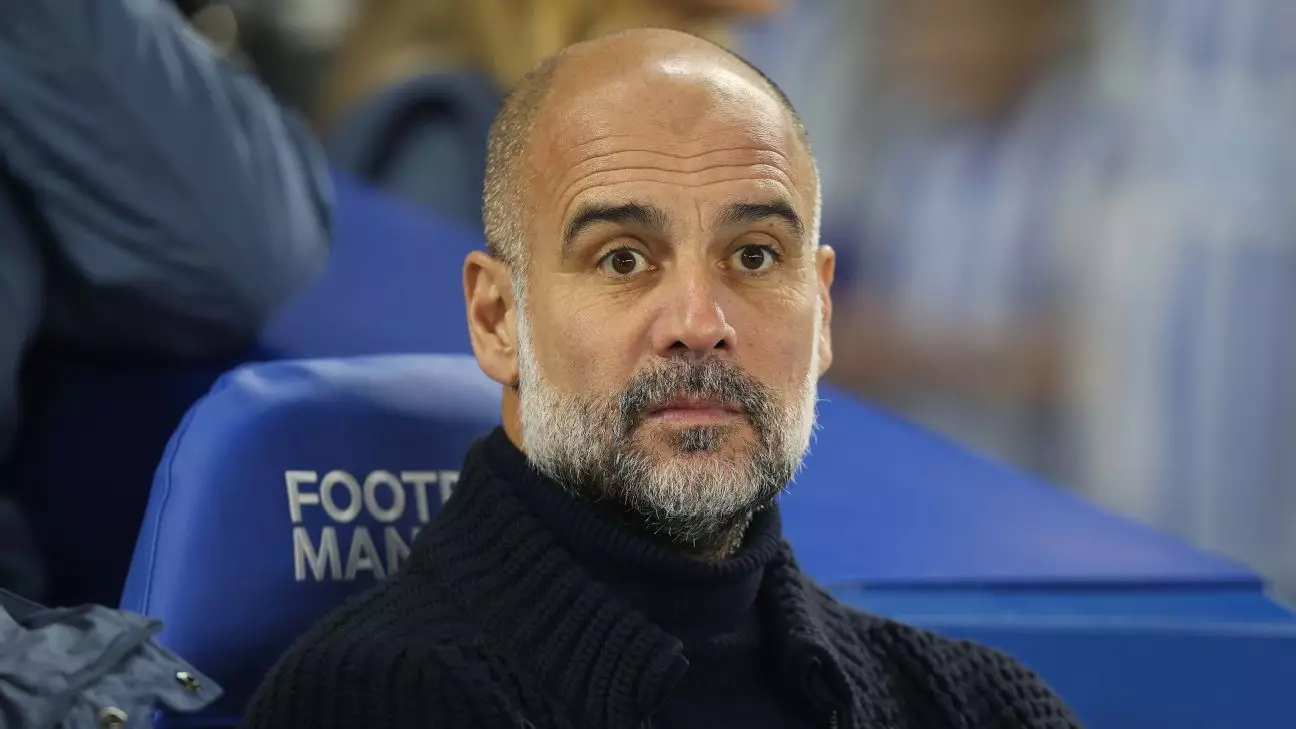Change is a concept familiar to those following the elite football landscape, and Manchester City now finds itself in the eye of a transformation storm. With the departures of pivotal figures such as Omar Berrada and Txiki Begiristain, both key players in this transformative era, the sky appears cloudy over the Etihad Stadium. These changes heap additional pressure on the club’s future prospects, particularly concerning the future of head coach Pep Guardiola. Should he choose to depart, it would not only mark the end of an era but could also lead to a significant reconstruction of a squad that has redefined success in English football.
Berrada, leaving his role as Chief Operating Officer for arch-rivals Manchester United, and Begiristain’s planned exit at the end of the season amplify the sense of instability within the club. Their influence since arriving at City has evolved the club from a struggling outfit to one of Europe’s most feared teams, collecting numerous trophies and setting records along the way. The short-term future may lie in Guardiola’s hands, pending his decision on whether to remain or follow suit.
Pep Guardiola, the mastermind behind City’s footballing revolution, remains in a precarious position with his contract set to expire at the end of the current season. His public proclamations imply that he is still weighing his options, with suggestions that unresolved matters might nudge him toward an exit. This uncertainty has been exacerbated by a poor performance on the pitch, with the team recording four consecutive defeats—a first for Guardiola in his managerial career.
Injuries have disrupted City’s performance, yet the underlying concern remains that the club could be undergoing a substantial transformation. City executives are keen to maintain trust in Guardiola’s judgment. They believe in his ability to communicate vital information regarding his future without external pressure swaying him. However, the lack of clarity can be damaging, leading to operational uncertainties and affecting the players’ focus during critical months.
Within the walls of the Manchester City hierarchy, there exists a pragmatic approach toward Guardiola’s potential departure. While there is no immediate panic, and City’s standings still reflect competitive potential, discussions regarding future managerial candidates have already begun. Names like Xabi Alonso are being floated as viable successors, demonstrating that the club is preparing for various eventualities. However, this transition necessitates careful consideration of Guardiola’s long-standing impact on the club.
Guardiola has previously spoken of his deep connection to City, with accolades reflecting his journey as both a dream and a challenge fulfilled. The uncertainty of his tenure doesn’t only affect him—it permeates the entire club. Players must focus not only on performance but also the looming questions concerning futures and potential changes in leadership. A long-term distraction could stall City’s ambitions in pursuing more trophies domestically and internationally.
As City attempts to solidify its position as a top-tier club, it must reckon with another pressing reality: an aging player roster requiring rejuvenation. Key stars, including Kyle Walker and Kevin De Bruyne, are nearing the twilight of their careers, and replacements will be essential for maintaining competitive standards. Furthermore, with young talents on the roster, the blend of experience and youth must be strategically navigated for future success.
This transitional phase means identifying key players who can take the mantle and potentially establish a new era reflective of the original Guardiola philosophy. A successful integration could stand as a testament to City’s ongoing evolution—a reclamation of identity that prioritizes sustainable success. The appointments of reliable successors in both player and managerial roles will be critical as they look to pave the way forward.
Manchester City stands at a critical juncture. The next steps taken by Guardiola, the recruiting efforts for new management, and how the current squad is managed in light of both contractual uncertainties and integration of recruits will shape the future landscape of the club significantly.
As it prepares for the next chapter, whether that includes Guardiola’s continued leadership or a freshly appointed manager, what is certain is that change is inevitable. The atmosphere is rich with anticipation and uncertainty, setting the stage for a defining period—one that could illuminate or overshadow City’s illustrious history. How they navigate this junction will determine not just the fate of a season, but potentially the ethos of a club that has captured the hearts of many.
